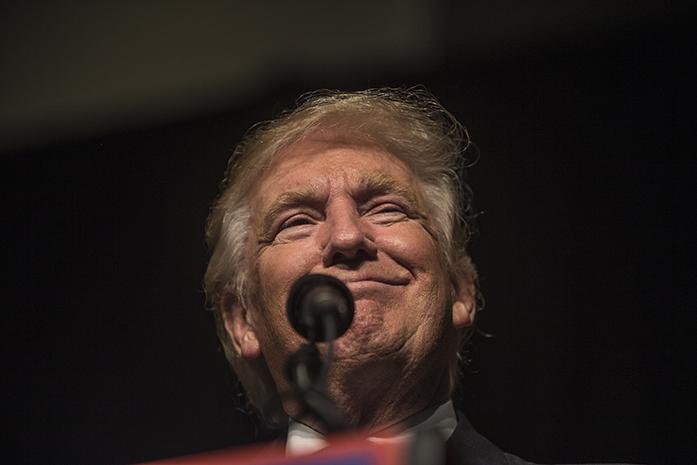The year 2016 has proven to be quite an eventful year to this point. Divisiveness is highly discernible as both citizens and leaders try to grapple with the social and political turmoil that has pervaded our culture.
The current uproar over a Colin Kaepernick-sparked protest is merely the latest case of controversy that has ravaged everyday discourse. What is more, we now rest fewer than seven weeks from the culmination of what appears to be one of the most perplexing election cycles in American history. The nominating process produced two of the most unpopular candidates of all time, and many of us are still left wondering how and why this happened.
In due time, we may come to fully understand the factors and context that have ignited the 2016 enigma; however, for the time being, only one thing is certain: The political landscape of our country has changed. Furthermore, we can trace the source of this change to none other than Donald Trump.
Many supporters argue that Trump’s greatest asset is his unconventionality, while others contend that his unconventionality has no place in politics. Although there are different ways in which to view the unconventional nature of Trump, it is clear that his unorthodoxy serves as a double-edged sword fascinating pundits and voters alike.
Throughout his campaign Trump has defied norms of objectivity and political correctness, instead opting to communicate via off-the-cuff statements expressing his fleeting opinions. Interestingly enough, these opinions have a tendency to be inflammatory as opposed to conciliatory. Put another way, Trump has chosen to forgo the political precedent of pandering in which a politician says what plays well with the public.
To his critics, this signifies that Trump is unfit to lead because politics as usual demands that a leader compromise and refrain from incendiary rhetoric. Trump supporters, on the other hand, argue that his unreserved demeanor shows he can lead with authenticity. Thus, Trump has effectively altered the political paradigm by stating his true opinions on issues instead of the contrived opinions commonly dispersed by most politicians.
A slight nuance. Nonetheless, the election so far has shown that the consequences of this tweak in political stratagem can be highly advantageous for future candidates. Currently, polls place Trump and Clinton in a tight race. In light of Trump’s relative success, perhaps politicians really can say what they please without filtering their opinions through societal norms and values. To better comprehend how Trump has changed the nature of politics, one needs only to compare his tactics with that of his opponent. In the abstract, Clinton represents politics as usual (conventionalism) while Trump diverges from expectations by ‘calling it like it is (unconventionality).
Regardless of whether he becomes our next president or not, Trump has ostensibly fueled a devolution of at least one political precedent by unleashing an assault on political correctness. As meteorologists show us time and time again, the future is hard to predict; meaning we don’t know for sure if Trump has started a movement away from “PC culture.”



